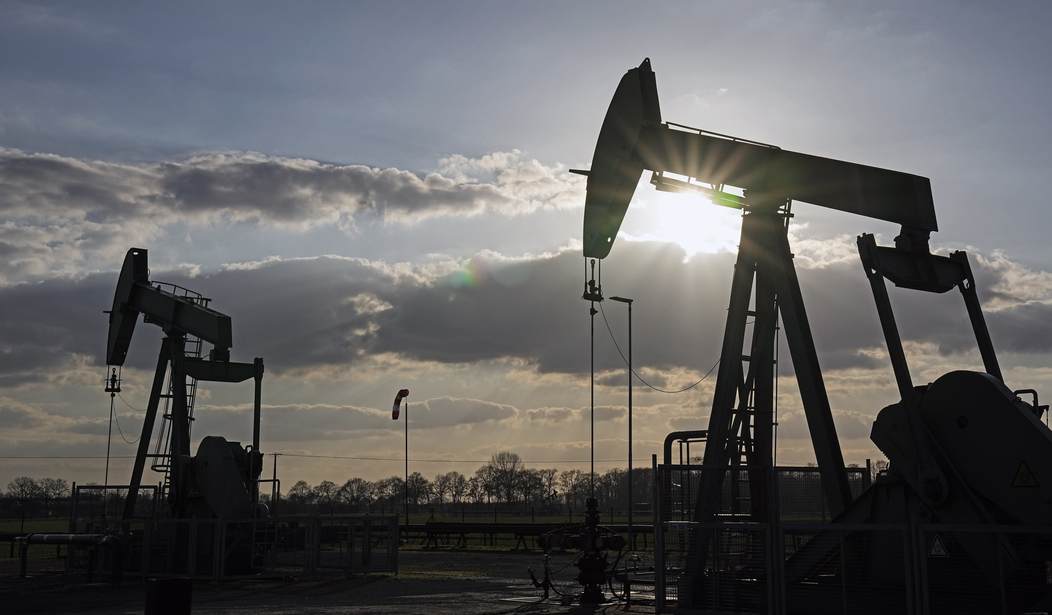Germany has been in a state of cultural decline for years. It's allowed a massive influx of migrants to take over the country, leading to terror attacks and the cancellation of uniquely German things like Oktoberfest and outdoor Christmas markets from ongoing threats of violence.
The country is also facing a serious economic decline, including deindustrialization.
NEW - Exploding electricity and gas prices: The "energy transition" is driving Germany towards deindustrialization — NZZ pic.twitter.com/xCj6KsODTn
— Disclose.tv (@disclosetv) November 1, 2025
Earlier this year, International Banker was sounding the alarm bells on German deindustrialization:
Gitta Connemann agreed with Kezer’s position during the meeting. “Unfortunately, the analysis is correct. Germany still has a unique foundation—3.3 million enterprises, of which 99 percent are small and medium-sized companies,” the German politician and chairman of the Christian Democratic Union of Germany’s (CDU’s) Committee on Small and Medium-Sized Enterprises said. “They used to go on the overtaking lane, but today they got stuck on the side of the road. They are hampered by huge energy prices, too-high taxes and contributions, paralysing bureaucracy and hostility to innovation.”
Such views are now commonplace within Germany. For one, its manufacturing output has been shrinking since 2017, with this decline only gathering pace in the face of waning competitiveness. Among the key issues contributing to this dire situation, exorbitant energy costs faced by manufacturers across the country have been the most impactful, as highly questionable domestic energy policies and unfavourable changes in the global energy-trading infrastructure have left companies facing massive energy bills that have seriously hamstrung their capacity to remain profitable.
“The confidence of the German economy in energy policy has been severely damaged,” DIHK’s (the German Chamber of Commerce and Industry’s) deputy general manager, Achim Dercks, stated in the 2024 Energy Transition Barometer survey of some 3,284 companies based in Germany, published by DIHK in August 2024. Dercks also confirmed that the country is commencing a major process of deindustrialisation. Indeed, the report noted that 51 percent of companies based in Germany with at least 500 employees, as well as 45 percent of companies bearing high power costs, are either considering moving their operations out of the country and reducing domestic production or have already begun doing so.
Recommended
By the end of 2024, it was estimated that Germany had lost 70,000 jobs due to ongoing deindustrialization. The ifo Institute predicts Germany could lose one million jobs by 2030 in the current political, economic, and regulatory climate. The Institute for Employment Research also says the nation could face a worker shortage of seven million by 2035.
That, of course, creates a bigger problem and may force Germany to rely on more immigration to make up the shortage. It also lessens Germany's power both in the European Union and on the international stage.
Good Morning from #Germany, which is in industrial decline. Since 2019, 245,000 manufacturing jobs have disappeared. Steel production is down 12%, and car output has plunged from 6mln vehicles in 2017 to just 4 mln today. Germany’s small and mid-sized comps now find themselves… pic.twitter.com/U9OS8hyhfJ
— Holger Zschaepitz (@Schuldensuehner) October 21, 2025
The lesson here for Americans is simple: green policies destroy economies. Germany has pushed to close and phase out both nuclear and coal-fired power plants in order to meet its "green" climate goals. Unfortunately, those green energy sources haven't been enough to keep up with demand, and — coupled with ongoing conflicts with Russia — energy prices have skyrocketed. That directly impacts businesses, especially in the industry, and the cost of living skyrockets.
Keep that in mind, especially on election day, as there are politicians running for office who would do the same thing here in America.
Editor’s Note: The Schumer Shutdown is here. Rather than put the American people first, Chuck Schumer and the radical Democrats forced a government shutdown for healthcare for illegals. They own this.
Help us continue to report the truth about the Schumer Shutdown. Use promo code POTUS47 to get 74% off your VIP membership.

























Join the conversation as a VIP Member